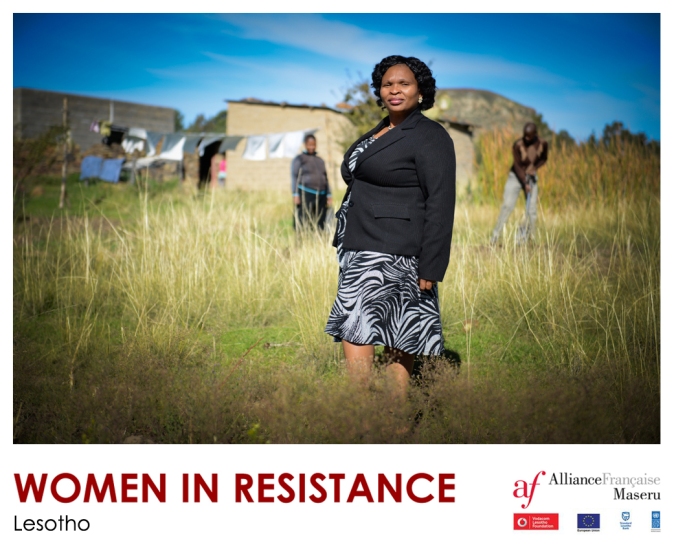
Photo © Meri Hyöky / Text by Leila Hall
Since 2007, ‘Manteboheleng Mabetha has worked closely with Gender Links, a Southern African NGO that promotes gender equality and justice in fifteen countries in the region. In January 2014, Mabetha became Country Manager of the Gender Links Lesotho office.
A major focus of the organisation is to work with local community councils to develop and implement gender policies and action plans. Every year, Gender Links Lesotho selects ten community councils, one per district, and works intensively with them to ensure that gender equality becomes a primary focus of their work.
“We want councils to consider gender equality in everything that they do: in their day-to-day work with communities in villages,” explains Mabetha. “We introduce them to key gender concepts, help them to improve their advocacy skills, and guide them in developing gender action plans. Every year, we hold regional and national summits in which councils come together to share their experiences.”
“If funding allows us, we want every council in Lesotho to become a Centre of Excellence for gender in local government. Right now, we have a total of 74 councils in Lesotho, and we have already worked with 50 of them.”
“When we begin work with a council, we often encounter negative attitudes. Councillors argue with us, insisting that women should not have any power, that they should know their place. But after training, we see a real change in people’s attitudes. Some councils used to be dominated by men. Now, we see women standing up and voicing their opinions. Many of the councils that we have trained now have women as their chairpersons.”
In 2013, Gender Links conducted a baseline study on violence against women in Lesotho. The results of the survey were shocking, revealing that 86% of women in Lesotho have experienced gender-based violence (GBV). In response to this, Gender Links launched an Entrepreneurship Program for survivors of GBV.
“Women in Lesotho are often economically dependant on men. In 10 councils, we have taken survivors of GBV through training in entrepreneurship skills. We now plan to help them find the start-up capital that they need to launch their own businesses.”
“We cannot achieve gender equality in Lesotho when the country’s rates of GBV are so high. Our study found that many women do not report incidences of GBV because in our culture, a woman is not expected to talk about what happens in the home. If a woman is beaten by her husband, she is not expected to speak about it in public. It is seen as a private matter.”
“Women in Lesotho are highly educated. Unlike in other SADC countries, women are more educated than men. And yet, the way that we have been raised makes us think that we need men to make decisions. Men are still favoured, they still get higher positions. Women are not taken seriously in positions of decision-making. We, as Basotho women, have been made to believe that women are inferior.”
“I want to see this change. As women, we need to change our attitudes towards ourselves and our fellow women. My dream is to see Basotho women believing in themselves, going out there and making the change that they are destined to make.”